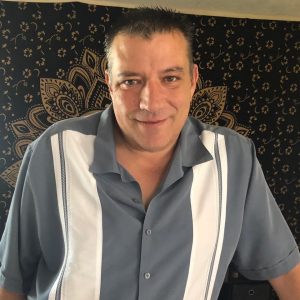Psilocybin, in fact, is spreading like the network it truly is… spanning across not only the obvious subcultures which are thought to be the sole users, but to mainstream media, respected academics, physicians, and educators. Psychedelics are breaking through the barrier amid decriminalization, research, and a general paradigm shift.
Denver Makes History... Again
On May 7, 2019, thanks largely to the efforts of Decimalize Denver, and their Denver Psilocybin Initiative (I-301), Denver voters approved the decriminalization of psilocybin mushrooms, making the adult possession and use of them the lowest law enforcement priority and prohibits the city from spending resources on enforcing the fungi, effectively becoming the first U.S. city to do so.
They were quickly followed by Oakland, California and Chicago, Illinois, who both voted in favor of decriminalizing not only psilocybin, but all organic plant-based psychedelic medicines. Common amongst conversations from those following this trend are hedging that Berkley, San Francisco and Ann Arbor will be next with similar initiatives.
Academic Interest
It is not only the voters who are showing approval for the passage of such initiatives. It is academics, educators, philanthropists, and politicians as well. Even the FDA recently granted “breakthrough therapy” status to study psilocybin-assisted therapy for treatment-resistant depression.
Preliminary studies from Johns Hopkins and New York University, UCLA, and Imperial College of London suggest that psilocybin-assisted therapy could be a revolutionary treatment for alcoholism, tobacco cessation, anxiety, depression (especially for those with terminal or chronic illness), and general depression. Meanwhile, other research is finding that psilocybin may be helpful in the treatment of cluster headaches, PTSD, OCD, opiate addiction, and mood disorders.
The Center for Psychedelic and Consciousness Research
Further driving home the new paradigm amongst the complete spectrum of researchers striving to create the first real mental health breakthrough to occur in generations, John Hopkins Medicine announced the launch of The Center for Psychedelic and Consciousness Research in September of this year, after receiving more than $7 million in funding from private donors.
It is commonly believed that this is the first center of its kind in America, and also the largest in the world. The funding will help a core team of six neuroscientists, psychologists, clinicians and a handful of postdoctoral research scientists all conducting and running breakthrough trials. The center will become a showcase, a new beacon of light in the consciousness towards the approach of medicine, even though John Hopkins has been conducting studies since 2000, when they became the first research group to get regulatory approval in the U.S. to use psychedelics with human volunteers.
Other Psychedelics are Gaining Ground
While the use of psilocybin is garnering the most mainstream attention, several other psychedelic therapies are close behind. MDMA, although not a plant-based medicine, has been highlighted on several national news programs. Fast-acting psychedelics such as DMT, or, according to a John Hopkins research study, 5-MeO-DMT show promise for treating depression and anxiety. A whopping 80% of test subjects reported improvements in symptoms associated with depression and anxiety after taking the medicine.

5-MeO-DMT (Bufo Alvarius)
Psychedelics At-a-GlanceJohns Hopkins researchers have also discovered that use of the psychedelic 5-methocy-N,-N-dimethyltryptamine (5-MeO-DMT) appears to be associated with unintended improvements in self-reported depression and anxiety when given in a ceremonial group setting. 5-MeO-DMT is a psychedelic that is found in the venom of the Colorado River Toad (Bufo Alvarius), also known as the Sonoran Desert Toad, and is found in northern Mexico and southwestern United States.
In a survey of 362 adults, approximately 80 percent of respondents reported improvements in anxiety and depression after use. These improvements were related to more intense acute mystical effects during the 5-MeO-DMT experience, as well as increases in rating of the personal meaning and spiritual significance of the experience. Improvements were also related to stronger beliefs that the experience contributed to enduring well-being and life satisfaction. These results were published in The American Journal of Drug and Alcohol Abuse.
The Paradigm Shift Continues
This is all just the tip of the iceberg. With therapeutic breakthroughs happening at a breakneck pace other indigenous, spiritual, and ceremonial medicines are becoming part of our jargon, vocabulary, and wellness journey. Whether we are talking about hapé or rapé (tobacco snuff for clarity and focus), or Kambo (another frog whose secretions are purgative and immune-boosting), these medicines are quickly becoming alternatives when traditional medicine has failed. Further, Collier County even has two ketamine clinics. Although this medicine is not plant-based either, it has extremely promising results for treatment-resistant depression.
Maybe it is time to allow the paradigm shift to reach it’s potential. Maybe the DEA and past fear mongers got it totally wrong. Maybe we as a society are becoming more enlightened and we are starting to take control of our health, instead of it controlling us. Maybe we will quit putting profits before patients. So the next time someone says we need to “save the rainforests,” maybe we should take heed… after all, that rainforest may contain the medicines to help save your life.





